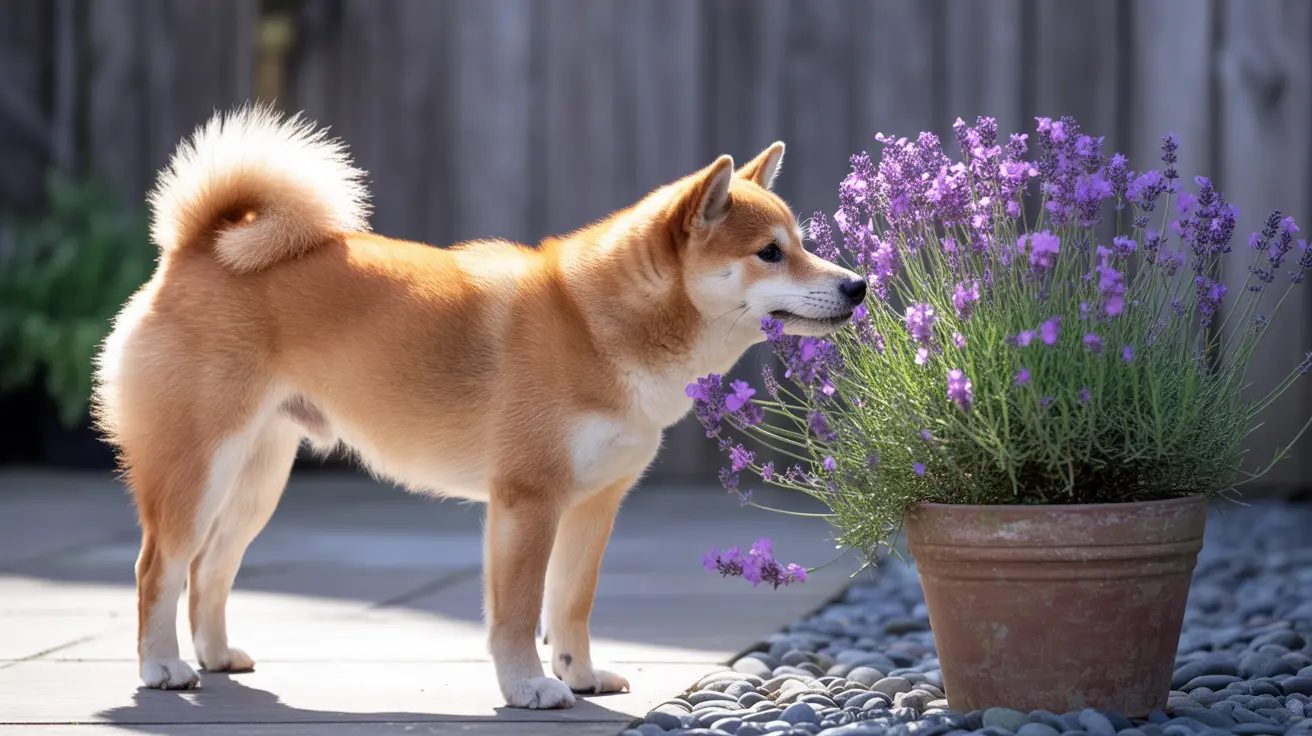Introduction
Is lavender safe for dogs? This question concerns many pet parents who want to enjoy the calming benefits of lavender while ensuring their furry friends' safety. While lavender can offer certain benefits when used appropriately, it's crucial to understand that not all forms of lavender are safe for our canine companions. This comprehensive guide will explore the risks and safe practices for having lavender around dogs, helping you make informed decisions about using this popular herb in your home.
Understanding Lavender's Effects on Dogs
When it comes to lavender and dogs, the safety factor largely depends on the form and concentration of exposure. While a dog walking past a lavender plant in the garden typically won't experience adverse effects, concentrated forms like essential oils can pose significant risks. The main compounds of concern are linalool and linalyl acetate, which can be toxic to dogs in high concentrations.
Natural Plants vs. Concentrated Forms
Fresh lavender plants contain relatively low concentrations of potentially harmful compounds, making them generally less risky. However, essential oils and other concentrated lavender products can be dangerous due to their highly concentrated nature. Even small amounts of these concentrated forms can cause adverse reactions in dogs.
Potential Risks and Warning Signs
While lavender isn't considered highly toxic, pet owners should be aware of potential symptoms that might indicate lavender poisoning in dogs:
- Gastrointestinal upset (vomiting, diarrhea)
- Lethargy or weakness
- Respiratory issues
- Skin irritation
- Changes in appetite
- Nervous system depression in severe cases
Safe Usage Guidelines
For Essential Oils
If you choose to use lavender essential oils in your home:
- Never apply undiluted oil directly to your dog
- Keep oils stored securely out of reach
- Use diffusers in well-ventilated areas
- Ensure your dog can leave the room where oils are being diffused
- Consider avoiding essential oil use altogether if you have pets with respiratory issues
For Garden Plants
When growing lavender in your garden:
- Plant lavender in areas your dog cannot easily access
- Monitor your dog's behavior around lavender plants
- Remove fallen flowers or trim plants to prevent accidental ingestion
- Consider fencing off lavender gardens if your dog shows interest in the plants
What to Do in Case of Exposure
If your dog shows signs of lavender poisoning or has been exposed to concentrated lavender products:
- Remove your dog from the source of exposure
- Contact your veterinarian immediately
- Document symptoms and time of exposure
- Have the ASPCA Animal Poison Control number (888-426-4435) readily available
Frequently Asked Questions
Is lavender safe for dogs to be around, and what forms of lavender are most risky?
While lavender plants are generally safe for dogs to be around, concentrated forms like essential oils pose the highest risk. Fresh lavender plants contain lower concentrations of toxic compounds, making them relatively safer, but essential oils and concentrated products should be kept away from dogs.
What symptoms should I watch for if my dog is exposed to lavender or lavender essential oil?
Watch for signs including vomiting, diarrhea, lethargy, respiratory issues, skin irritation, and changes in appetite. In severe cases, especially with essential oil exposure, dogs may experience nervous system depression. Contact your veterinarian if you notice any of these symptoms.
How can I safely use lavender essential oil or lavender products in a home with dogs?
If using lavender products, ensure proper ventilation, keep oils securely stored, never apply undiluted oils to your dog, and use diffusers in rooms your dog can easily leave. Consider avoiding essential oil use altogether if your dog has respiratory issues.
Can lavender essential oil really help calm anxious dogs, and what precautions are necessary?
While some anecdotal evidence suggests lavender may have calming effects, scientific evidence is limited. Any potential use should be discussed with your veterinarian first, and safer alternatives for anxiety management should be considered.
What should I do if my dog ingests lavender or shows signs of lavender poisoning?
If your dog ingests lavender or shows signs of poisoning, contact your veterinarian immediately. Remove your dog from the source of exposure, document symptoms, and have the ASPCA Animal Poison Control number ready. Prompt medical attention is crucial for proper treatment.
Conclusion
While lavender can be safely incorporated into homes with dogs, it requires careful consideration and proper precautions. Understanding the risks, recognizing warning signs, and knowing how to respond to potential exposure are crucial for pet parents. When in doubt, always consult with your veterinarian before introducing any form of lavender into your dog's environment.






